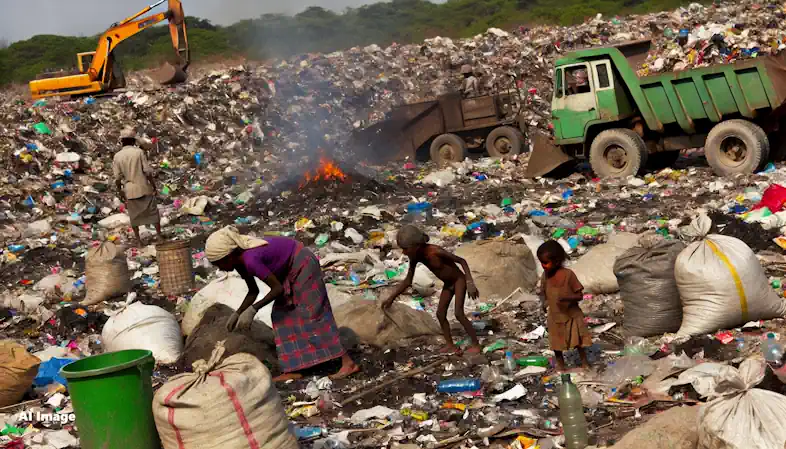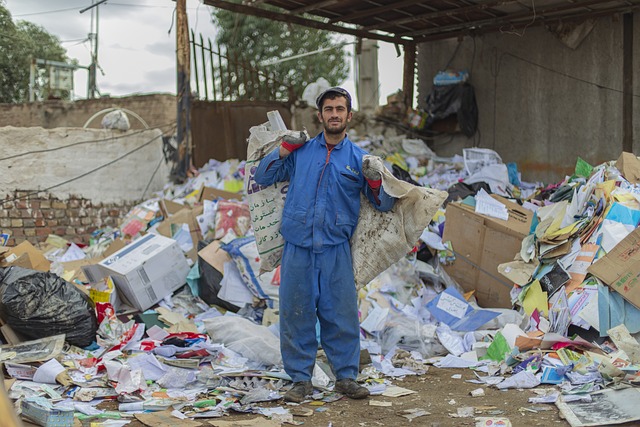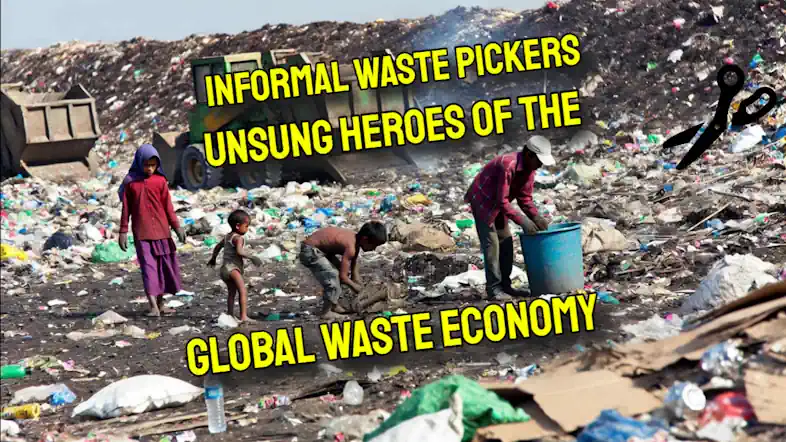The Crucial Role of Informal Waste Pickers and Collectors in Global Waste Management
Millions of people around the world rely on collecting, sorting, recycling, and selling materials discarded by others. These informal waste pickers play an essential, yet often unrecognized, role in managing waste and supporting the recycling economy. In many developing countries, informal waste pickers and collectors are the backbone of waste collection, providing vital environmental, economic, and social benefits.
Despite their indispensable contribution, waste pickers remain largely marginalized, facing poor working conditions and low social status. This article explores the world of informal waste pickers and collectors, their challenges, and how their efforts can transform urban waste management.
Key Takeaways
- Informal waste pickers are individuals who collect, sort, and sell recyclable materials discarded by others.
- Informal waste collectors play a pivotal role in reducing waste that ends up in landfills, contributing to environmental sustainability.
- Organizing waste pickers into cooperatives or unions has led to improved working conditions and economic benefits.
- Despite their contribution, waste pickers often face marginalization, unsafe working conditions, and exploitation by intermediaries.
- Governments and cities can save costs and reduce environmental impact by integrating informal waste pickers into formal waste management systems.

Who Are Informal Waste Pickers and Collectors?
Definition of Informal Waste Pickers
Informal waste pickers are individuals who collect reusable or recyclable materials from discarded waste. This includes scavenging through landfills, streets, or bins for items like plastic, paper, metal, and glass. Informal waste pickers often work independently, selling their collected items to middlemen or recycling centres.
Definition of Informal Waste Collectors
Informal waste collectors are a broader group that encompasses not only waste pickers but also those who collect waste directly from households or businesses without formal contracts with municipalities. These individuals operate in the informal economy and often lack legal recognition or protections.
The Role of Informal Waste Pickers in Global Waste Management
Economic and Environmental Contributions
Informal waste pickers provide significant environmental and economic benefits. Key impacts include:
- Waste Reduction: By diverting recyclable materials from landfills, informal waste collectors help reduce the volume of waste that must be managed by cities.
- Resource Conservation: By reintroducing materials into the recycling chain, pickers reduce the need for raw materials, contributing to resource conservation.
- Cost Savings: Waste pickers reduce the costs of waste management for municipalities by decreasing the amount of waste that needs to be processed.
Table 1: Economic Impact of Informal Waste Pickers (Estimated Annual Contribution in Select Cities)
| City | Estimated Waste Pickers | Waste Recycled (%) | Cost Savings to City (USD) |
|---|---|---|---|
| Delhi | 150,000 | 20% | $2,500/day |
| São Paulo | 500,000 | 15% | $1.2 million/year |
| Pune | 6,000 | 18% | $600,000/year |
Challenges Faced by Informal Waste Pickers
Social and Economic Marginalization
Despite their essential role, informal waste pickers are often marginalized and stigmatized. Most are:
- Women and children: A large percentage of waste pickers are women and children, who are often vulnerable to exploitation.
- Low-income earners: Waste pickers typically earn very low incomes, especially when dealing with intermediaries who offer minimal compensation.
- Lack of social protections: Waste pickers are not covered by labour laws, meaning they often work without safety equipment, insurance, or healthcare access.

Unsafe Working Conditions
Informal waste pickers are frequently exposed to hazardous materials, as many operate in unsanitary landfills or urban environments. Common hazards include:
- Injury risks: Landfills with compacting machinery pose a significant danger.
- Health risks: Lack of personal protective equipment (PPE) exposes pickers to disease and injury from sharp or toxic waste.
How Organized Waste Pickers Are Changing the System
When waste pickers unite into cooperatives or unions, they can significantly improve their livelihoods and working conditions. Notable initiatives include:
Cooperatives and Unions
- Waste picker cooperatives: These cooperatives allow pickers to sell directly to recycling industries, cutting out intermediaries and increasing their income.
- Municipal partnerships: In cities like Pune and São Paulo, waste pickers have formed partnerships with local governments to gain access to waste and better prices.
Case Study: Pune, India
In Pune, organized waste pickers earn up to three times more than independent pickers. They have also gained access to better working conditions by working in designated sorting facilities, reducing the risks of landfill work.
Brazil: A Model for Waste Picker Organization
In Brazil, the catadores (waste pickers) have established a network of cooperatives that offer improved working conditions and better compensation. This model has been replicated across many Brazilian cities.
Sustainable Solutions: How Informal Waste Collectors Can Help Save the Planet
Waste pickers not only help reduce urban waste but also play a role in combating climate change. By diverting waste from landfills, they contribute to reducing methane emissions from decomposing waste.
Figure 1: Environmental Impact of Waste Pickers
| Category | Impact |
|---|---|
| Waste diverted | 20-30% in many cities |
| CO2 emissions reduction | Up to 120 tons of CO2 equivalent per picker/year |
| Methane reduction | Significant due to less waste in landfills |
Key Takeaways
- Informal waste pickers and informal waste collectors play a crucial role in urban waste management, particularly in developing countries.
- Their efforts contribute to waste reduction, recycling, and cost savings for municipalities.
- Despite their contributions, they face marginalization, poor working conditions, and economic exploitation.
- Organized efforts through cooperatives and unions have improved their working conditions and income.
- Integrating informal pickers into formal waste management systems can have profound economic and environmental benefits.

FAQs: Understanding Informal Waste Pickers
What are informal waste pickers?
Informal waste pickers are individuals who collect recyclable materials from waste, either independently or through informal networks and sell them to intermediaries or recycling centres.
Why are informal waste collectors important?
Informal waste collectors help reduce the volume of waste sent to landfills, contribute to recycling efforts, and provide critical environmental and economic services, especially in developing countries.
How can governments support waste pickers?
Governments can support waste pickers by:
- Formalizing their work through contracts and partnerships.
- Providing access to waste in a safe and regulated manner.
- Offering social protections such as health insurance and safety equipment.
What are the main challenges waste pickers face?
Waste pickers face poor working conditions, marginalization, low pay, and a lack of social protections.
[Article first published 14 March 2012.]







